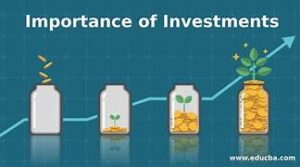How do you start your investment?
 How do I start investing for beginners?
How do I start investing for beginners?
Choose your investment strategy. A significant first step for investing beginners is to decide on an investment strategy. Think about how much time you’re willing and able to devote to investing. These days, you can automate all your investing, making it simple and easy to grow your wealth.
How do I begin participating in the stock market?
Below are some simple tips to remember when investing in the stock market: Begin Early and Invest Regularly. The power of compounding can make a big difference over time. Even small amounts invested regularly can grow substantially. Set Clear Goals: Understand why you’re investing.
How much money do you need to start investing?
Many people think you need a large amount of money to start investing. This isn’t true. While it won’t get you far, many investment platforms have deposit minimums of £1. So, technically, anyone can get started investing. Specific platforms will require higher minimums for your first deposit.
Take the Next Step to Invest
Investment banks’ work also may include issuing securities to raise money for customer groups and making the papers for the U.S. Securities and Exchange Commission (SEC) vital for a company to go public.
Note
Investment banks employ bankers who help companies, states, and other groups plan and manage large projects. They save their customers time and money by detecting dangers connected with the project before the client turns onward.
In the system, investment bankers are authorities who keep their fingers on the pulse of the current investing climate. Businesses and organizations turn to investment banks for information on how best to plan their expansion, as investment bankers can strengthen their references to the present state of economic affairs.
Initial Public Offering (IPO) Underwriting Investment banks act as brokers between companies and shareholders when the company wants to issue stock or bonds. They assist with pricing financial instruments to maximize revenue and navigate regulatory requirements.
Investment banks act as brokers between companies and shareholders when the company wants to issue stock or bonds. They assist with pricing financial instruments to maximize revenue and navigate regulatory requirements.
Frequently, when a company holds its IPO, an investment bank buys all or most of its shares directly from the company.
Subsequently, the investment bank will sell the shares on the market as a proxy for the company launching the IPO. This makes things much easier for the company, as it efficiently contracts out the IPO to the investment bank.
Furthermore, the investment bank tends to make a profit, as it usually costs its shares at a markup from what it paid at the start for them. However, doing so also involves a substantial amount of risk.
Although experienced analysts use their expertise to price the stock accurately, the investment bank can lose finance money on the deal if it overestimates the stock. In this case, it will often have to sell the stock for less than initially paid.
What Is an Initial Public Offering (IPO)?
An initial public offering (IPO) refers to offering shares of a private company to the public in a new stock issue. Public share issuing allows a company to increase capital from public shareholders. Companies must meet limitations set by connections and the SEC to hold an IPO. Companies hire stock banks to guarantee their IPOs. The underwriters are implicated in every feature of the IPO: due persistence, document preparation, filing, marketing, and issuance.
 The Lowest Line
The Lowest Line
Savings groups like Goldman Sachs and Morgan Stanley are frequently mentioned in discussions about the financial market, highlighting their importance in the global monetary situation.
Investment banks generally help customers with the large and complicated financial industry. This includes backing new debt and equity safety, helping in the sale of securities, and helping to assist combinations and assets, reforms, and agent trades. Investment banks may help other companies raise capital by underwriting initial public offerings (IPOs) and developing the papers required for a
The Bottom Line
An investment is a plan to put money to work today to obtain a more significant amount in the future. It is also the initial way people save for major purchases or retirement. Individuals can create a diversified portfolio with stocks, bonds, real estate, or commodities.

